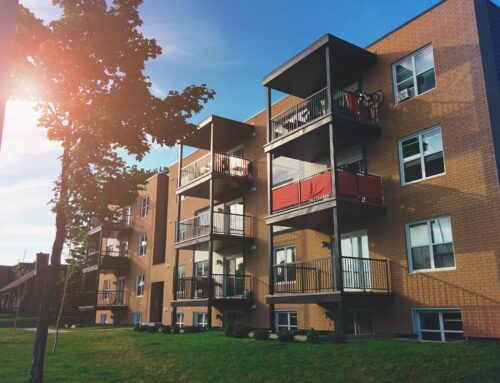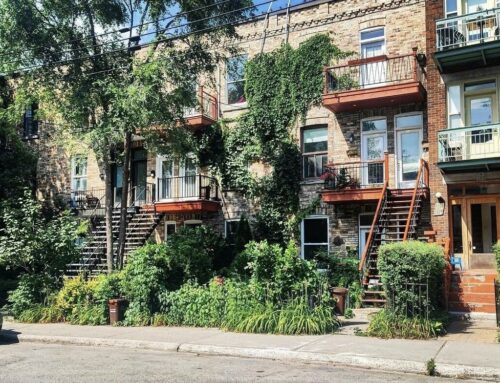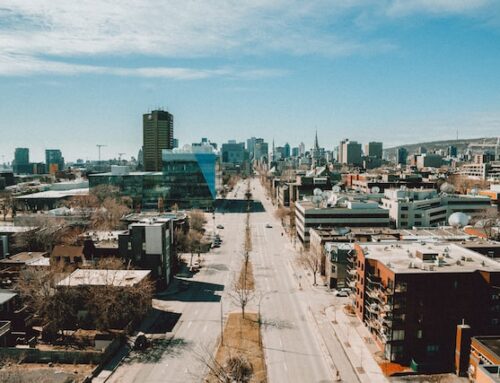Whether you’re moving to Toronto, moving within Toronto, or just looking to buy some investment property in Canada’s number one city, you’ll quickly find that Toronto’s real estate market is red hot. In the last decade or so, a number of factors have conspired to make Toronto one of North America’s most desirable cities and most attractive housing markets.
Why Toronto?
Canadians enjoy a quality of life that rivals or surpasses that of any industrial nation. That ideal intersection of peace and prosperity is evident in the country’s political serenity and economic security. The Canadian’s reputation for being friendly and amiable is almost legendary. Crime is low, public welfare is high, and civil unrest is almost unheard of. Furthermore, the country is enormous its small population shares in an vast wealth of natural resources.
Although Ottawa is still the nation’s capital, Toronto is really Canada’s main attraction. The urban population of 2.7 million, and a metropolitan population of nearly 6 million in the GTA (Greater Toronto Area), make Toronto almost twice as populous as the country’s second city, Montreal. With that robust population comes an abundance of opportunities. The city is an important hub for business, finance and technology. It’s also a place of great diversity; nearly half the population was born outside of Canada.
Weather and language make Toronto a generally more desirable and more expensive city than Montreal (see our article on the cost of living in Toronto vs. Montreal). But other economic factors make Toronto’s real estate especially attractive to investors. In addition to Canada having a relatively weak currency and low interest rates, the Toronto area in particular has an especially healthy economy with above average growth and below average unemployment.
Is it difficult to buy property as a foreigner?
For the most part, there are no restrictions on foreigners buying property in Canada. However, there are a couple of items to be aware of. First, in the Greater Golden Horseshoe Region (GHR) which encompasses the GTA, foreign buyers may be faced with a non-resident speculation tax of 15 percent, which went into effect in April 2017. This is a one-time tax on the sale price of a residential property purchased by a non-citizen and non-permanent resident of Canada. Vancouver has a similar tax for foreign buyers, which increased in 2018 from 15 percent to 20 percent.
The aim of this tax was not to discriminate against foreigners, but to help cool down a somewhat out-of-control real estate market that was driving prices beyond the reach of ordinary residents living and working in the Toronto and Vancouver areas. In many cases, foreign investors (often from the U.S. and China) were taking advantage of Canada’s weak currency to purchase relatively inexpensive residential property only to rent it out and/or to resell it later at a handsome profit.
Banks and mortgage lenders might also require Canadian newcomers — even those with permanent residency status — to make larger down payments in order to qualify for a loan. Typically, Canadians will make a down payment of 20 percent and take out a 25-year mortgage. With down payments smaller than 20 percent, the government requires borrowers to purchase mortgage insurance. Foreigners and those with no credit history in Canada may have to make down payments of 35 to 50 percent and demonstrate that they have sufficient income and assets.
We’ve covered these topics in more detail in our articles on Canadian Mortgages and Buying a House in Canada.
Can you purchase property from outside the country?
We would strongly discourage you from buying property from overseas without ever coming to Canada to see it for yourself. But it can be done.
Like anything else, you can use the internet to shop for houses in Canada from anywhere in the world. You’ll find the most comprehensive listings at Realtor.ca, which maintains a detailed database of homes for sale all across the country. You may also wish to speak with a real estate agent, especially if you are looking into buying commercial property. You can shop for an agent online, but it’s generally better to go through a referral from someone you trust.
Can non-residents earn rental income in Canada?
Yes, it is not uncommon for foreign investors to buy commercial or residential property in Canada for rental income. In addition to Toronto’s 15 percent non-resident speculation tax mentioned above, all non-residents who collect rent on property owned in Canada must pay 25 percent of their rental income to the CRA (Canadian Revenue Agency). To claim this income, a foreign owner must file an NR6 with the CRA. It is possible to claim expenses to reduce your rental income tax liability.
Does purchasing property in Canada improve your immigration status or eligibility?
No. The Canadian government offers numerous paths to residency, but owning property does not provide a short cut to any of those paths. For more information on these immigration programs, take a look at out articles on moving to Canada as a freelancer, moving to Canada as a nomad or retiree, and moving to Canada as an investor, entrepreneur or skilled worker.
Current trends in the Toronto Real Estate Market
After some years of runaway prices, 2018 saw the Toronto real estate market make a dramatic slowdown. Prices haven’t begun to plummet yet, but analysts and homeowners are all asking themselves whether the market will crash or stay flat. Most people agree that we are not on the verge of a quick rebound. One factor at play is the non-resident speculation tax that went into effect in 2017. The goal was to help out local home buyers by slowing down the market in the name of affordability, so in that respect the tax policy succeeded.
Another event was the closure of a GM plant in Durham, east of Toronto, within the GHR. Closing factories and disappearing jobs means disappearing income, and that’s never good news. Consequently, some homeowners are now being forced to relocate and sell their homes in a hurry. Amazon had tentative plans to launch a new headquarters in Toronto, then opted for Virginia instead. But for the time being at least, housing demand is still greater than supply, so inventory is moving quickly and prices are holding steady.
The biggest concern on everyone’s minds right now has to do with rising interest rates. How fast will they rise and how high will they go? Tighter money supply means less buying power. This will keep prices down, but it won’t help prospective, first-time home buyers. It could also hurt current homeowners, because most Canadian mortgages renew every five years, at which time their interest rates are subject to change. All this spells uncertainty for owners and buyers alike, so the best we can do for 2019 is prepare for anything. Just don’t expect to see more double digit gains like we had 2016.
Learn more: If you’re new to the area and want to know more about the real estate market in Toronto, check out the following articles:







Leave A Comment